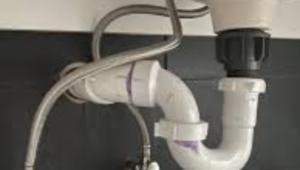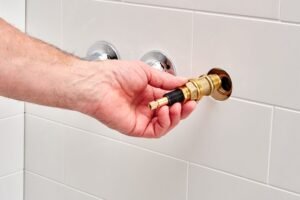A water softener service Maintenance is an essential home appliance that keeps your water free of hard minerals, enhancing your comfort and protecting your plumbing system. Like any other appliance, it needs regular care to perform at its best. By following a few straight forward maintenance tips and scheduling occasional professional servicing, you can keep your water softener in peak condition and avoid expensive repairs. Here’s how you can maintain your water softener system effectively.
What Is Water Softener Maintenance?
Water softener maintenance refers to the regular cleaning, refilling, and inspection of your system to ensure it effectively removes hard minerals like calcium and magnesium from your water.
Maintenance tasks include:
-
Refilling the salt in the brine tank
-
Cleaning the brine tank
-
Checking for salt bridges and buildup
-
Replacing worn-out resin
-
Installing a prefilter if needed
📅 How Often Should You Do It?
Here’s a general timeline:
| Task | Frequency |
|---|---|
| Check salt level | Every 4–6 weeks |
| Clean brine tank | Every 6–12 months |
| Inspect resin bed | Every 5–10 years |
| Replace prefilter | Every 6–9 months |
| Full system checkup | Annually |
For homes in Wyoming or Midwest areas with high mineral content, you may need more frequent service.
🛠️ Step-by-Step Water Softener Maintenance Guide
-
Check Salt Levels
Open the brine tank and ensure salt is above the water line. -
Break Salt Bridges
Use a broom handle to gently stir and break up crusts. -
Clean the Brine Tank
Empty, scrub with soap and bleach, rinse, then refill with fresh salt. -
Inspect for Resin Depletion
If water isn’t softening, the resin may need replacement. -
Install or Replace Prefilter
This protects the resin from iron, sediment, and dirt.
Why Regular Water Softener service Maintenance Matters
Regular water softener maintenance not only ensures soft water but also prolongs the life of the system. In areas with high water hardness, like parts of the Midwest, your water softener has to work harder, which may require more frequent upkeep. Here are six essential tips for water softener upkeep to help keep your system running smoothly.
Tip #1: Check Salt Levels Regularly
One of the most important aspects of soft water system maintenance is monitoring the salt level in the brine tank. Salt is crucial for removing hard minerals through ion exchange, and without enough salt, your system won’t be able to soften the water effectively. This could lead to hard water buildup, leaving chalky residue on fixtures and drying out your skin and hair.
How to Check the Salt Level
- Open the lid of the brine tank.
- Ensure that the salt covers the water in the tank.
- If the salt is below halfway, refill it to at least the halfway mark.
- Break up any salt crust on the sides before adding new salt.
Tip #2: Clean the Brine Tank Annually
Over time, your brine tank can accumulate salt sludge or clumps, which can reduce the efficiency of your water softener. Annual cleaning is a key part of water softener system maintenance. Homes with very hard water may need to clean their brine tank more frequently.
Steps for Cleaning the Brine Tank
- Safely dispose of the brine by emptying the tank in a gravel pit or outdoor area.
- Set your system to bypass mode and unplug it.
- Remove the brine tank, empty the contents, and scrub the interior with a brush and dish soap.
- For deep cleaning, use a bleach solution to sanitize, then rinse thoroughly.
- Reassemble the system and start a regeneration cycle.
Tip #3: Prevent and Break Up Salt Bridges
A salt bridge is a crusty buildup that prevents salt from dissolving and creating brine. This issue can arise due to high humidity or using low-quality salt. Without proper brine, your water softener can’t regenerate correctly, leading to hard water.
How to Eliminate Salt Bridges
- Use a broom handle to gently push into the brine tank.
- If you hit a solid mass that isn’t the tank bottom, there’s likely a salt bridge.
- Carefully break it up and add warm water if necessary to dissolve stubborn clumps.
Tip #4: Replace the Resin When Needed
The resin in your water softener enables the ion exchange that removes hard minerals from your water. Resin generally lasts around 10 to 15 years, but in areas with high iron or chlorine, it may wear out faster. If your softener consumes salt normally but doesn’t soften the water effectively, it may be time to replace the resin.
Tip #5: Use High-Quality Salt
Not all salt is the same. Using high-quality salt specifically designed for water softeners ensures optimal performance and prevents unwanted residue buildup. Cheaper salts may contain impurities that can clog the system and reduce its efficiency.
Tip #6: Install a Prefilter for Extra Protection
If your water contains sediment, iron, or other contaminants, consider adding a prefilter. This filter catches these particles before they enter your water softener, protecting it from clogs and prolonging its lifespan. A prefilter typically needs replacement every six to nine months.
When to Call the Experts at Forever West Plumbing
While routine water softener maintenance can be managed by most homeowners, some issues require a professional touch. Regular servicing by professionals ensures that your system stays in peak condition, delivering consistently soft water and preventing costly repairs.
Click here to get services from Forever West Plumbing to schedule professional water softener maintenance. Let our team handle the complex tasks and keep your system running smoothly.
Frequently Asked Questions (FAQ)
1. How often should I check the salt level in my water softener?
We recommend checking the salt level once a month, especially in areas with very hard water.
2. Can I clean the brine tank myself?
Yes, annual cleaning is something you can do yourself. However, our experts at Forever West Plumbing can handle it if you prefer.
3. When should I replace the resin in my water softener?
Resin typically lasts 10-15 years, but if you notice hard water despite regular salt use, it may be time to replace it.
4. What type of salt should I use?
Use high-purity salt designed for water softeners to keep your system functioning effectively.
5. Do I need a prefilter for my water softener?
A prefilter is beneficial if your water contains high levels of sediment or iron, as it can help prevent clogs in your system.
Need Help? Call the Wyoming Water Softener Experts
If your water softener isn’t working like it should—or you’re not sure where to start—Forever West Plumbing is here to help.
We proudly serve:
-
Cheyenne
-
Casper
-
Laramie
-
Gillette
-
Rock Springs
👉 Schedule your water softener service today with Forever West Plumbing.
📞 Call now or Book Online.






